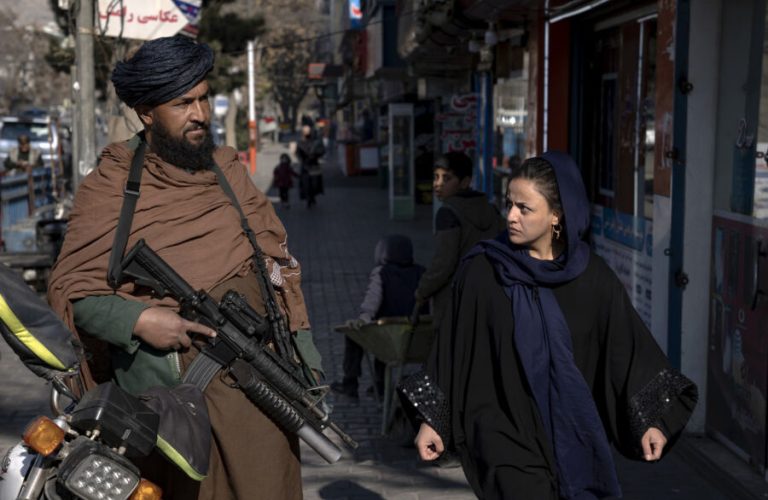
“We came to Kabul from Kapisa, hoping that some job would be available for us, but for now, my husband works as laborer and I am also a housewife. It is nearly impossible to pay the expenses of the house of my in-laws, which was used for our livelihood.” said Sheeba, a woman who worked as a teacher before the establishment of the Islamic Emirate. After imposition of restrictions on women, she stayed at home and her husband became unemployed at the same time.
Sheeba said that she used to work as a teacher in Kapisa and with the closing of the schools, she became unemployed and now she is in confused and without a future plan. Unemployment has multiplied the pressure of life on her shoulders. “Problems of house rent and food cannot be solved. This situation hurts me and puts pressure on my soul. We have a miserable life.”
According to Sheeba, she has been going from one school to another for months to find a job, but all doors are closed to her.
Sabria, another female citizen who worked for many years in foreign non-government institutions and became unemployed after the restrictions on women’s activities, says that she has no plans in her life these days, and therefore, she feels extremely hopeless, and occasionally thinks of committing suicide.
Sabria, said: “You see, there is no hope around us. All the gates are closed for us. When I stay at home for a few days, I have no plans from morning to night. I feel like I’m a prisoner at home, my mental state deteriorates so much that sometimes I want to commit suicide.”
Sabria has no income these days, and meets her basic needs with the help of her relatives. “Currently, we cannot take care of all our needs. “From a spiritual point of view, it hurts me because I studied as much as I could so that one day I will be someone important, but all in vain.”
In the past two years, many women have been forced to stay at home due to the restrictions imposed by the Islamic Emirate. This situation has made many of them face economic and other problems due to the lack of alternative income.
Margheli Faqirzai, another woman who stayed at home after work restrictions on women, said that she worked as a manager in various government offices for nearly 20 years and supported her family with her income. But after losing his job, the fear of an uncertain future imposed a lot of psychological pressure on her to the point where she went to eight different psychotherapists, but she still suffers from mental illness.
“I became unemployed, my daughter also stopped working. We are a closed and deprived family. I visited about eight psychologists in Kabul, but it didn’t work. We went to Pakistan but it didn’t work. Until our problem is fundamentally solved, our situation will be the same.”
According to the rough estimates, more than 11,400 women have become unemployed only by the restrictions imposed on women for working in four major non-governmental organizations. Many more women have been dismissed from government and non-government offices due to the restrictions of the past 20 months.



